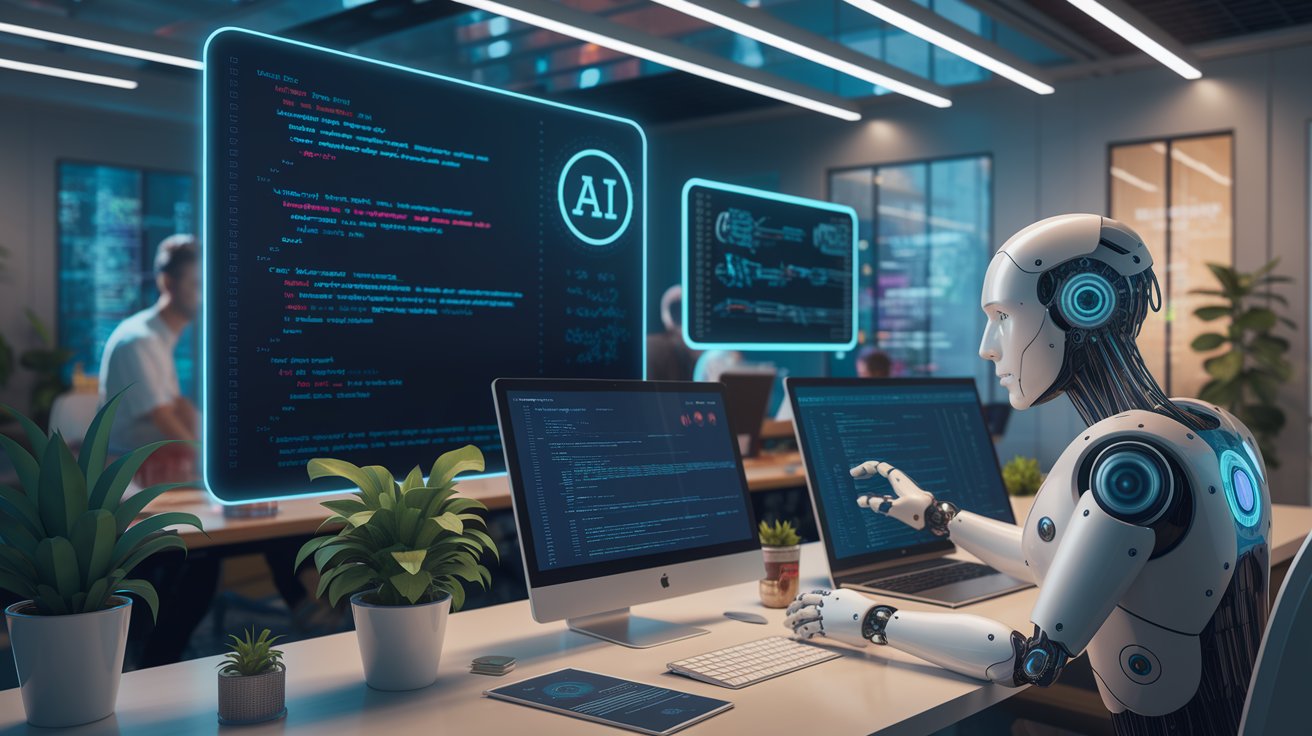The tech industry stands at a critical juncture, with artificial intelligence (AI) rapidly transforming the landscape of software development. According to Gartner analysts, up to 80% of software engineers risk losing their jobs by 2027 unless they upskill and adapt to the rapidly evolving technologies. While AI will enhance the capabilities of software engineers, those who fail to learn new skills such as natural language prompt engineering and retrieval-augmented generation (RAG) will find themselves left behind. In this detailed exploration, we uncover the key insights behind this bold prediction and the steps engineers must take to stay ahead.
AI is Not Replacing Engineers, But It’s Changing the Game

The fear of AI replacing software engineers has been circulating for years. However, Gartner reassures that AI is not eliminating engineers but shifting the nature of their roles. AI tools like GitHub Copilot and Claude by Anthropic have shown immense promise in generating code and assisting developers. Yet, instead of being seen as a threat, these tools offer new opportunities for developers who embrace AI-driven methods. Philip Walsh, a senior principal analyst at Gartner, emphasized this point in a recent note: “While AI will transform the future role of software engineers, human expertise and creativity will always be essential to delivering complex, innovative software.”
The need for human creativity in software engineering remains irreplaceable, especially when it comes to delivering complex systems that require intuition, strategy, and design—all areas where AI currently lacks proficiency. However, analysts warn that engineers need to adjust their skill sets to focus on areas where AI can support rather than replace their work. As AI technologies continue to evolve, upskilling will be essential to maintaining relevance in the industry.
Short-Term Impact: AI Tools Complement Developers
In the near term, AI is expected to boost productivity by complementing the work of existing software engineers. According to Gartner, AI tools will operate within clearly defined boundaries and focus on enhancing workflows. This means AI can handle repetitive or mundane tasks—like writing boilerplate code or debugging common errors—while engineers focus on higher-level, creative tasks.
Tools like GitHub Copilot and other AI-powered code editors are already showing how AI can become a developer’s assistant, guiding engineers through coding tasks more efficiently. However, early surveys show mixed results when it comes to AI’s ability to improve productivity. A survey of 800 developers using GitHub Copilot found that productivity gains were minimal, and the introduction of bugs increased by 41% within pull requests.
Despite these growing pains, AI is expected to play a vital role in the early stages of its integration into software development. Engineers who understand how to effectively use these tools will have a significant advantage over those who resist adopting them.
Mid-Term Impact: AI Automates Core Development Tasks
In the medium term, AI is poised to automate more of the core tasks typically handled by software engineers. As AI advances, its ability to generate code will expand beyond assisting with mundane tasks to writing entire blocks of code autonomously. At this stage, Gartner expects the majority of code within certain organizations to be AI-generated, with engineers serving more in supervisory and quality assurance roles.
This shift will require a redefining of what it means to be a software engineer. AI-native software engineering will become a growing trend, where engineers work alongside AI agents to develop, review, and implement solutions. Engineers will need to upskill in areas like AI ethics, AI model tuning, and AI-enhanced development workflows to stay competitive.
This is where skills like RAG (retrieval-augmented generation) come into play. RAG allows developers to use AI to access and retrieve relevant information in real-time during coding tasks, making development faster and more accurate. Engineers who master RAG and other AI-enhanced methodologies will thrive in this evolving landscape, while those who don’t risk obsolescence.
Long-Term Impact: AI Empowers Skilled Engineers
In the long term, AI will continue to revolutionize software development and create new opportunities for skilled engineers. Gartner forecasts that organizations will increasingly seek to hire software engineers who possess AI expertise to meet the rising demand for AI-empowered software.
However, the future isn’t just about technical skills. Engineers will need to invest in creative problem-solving and strategic thinking to manage AI-driven development projects. While AI can handle coding tasks, it cannot replicate the intuition, creativity, and big-picture thinking that human engineers bring to the table. As AI-generated code becomes more prevalent, engineers will need to focus on areas like system design, AI ethics, and data privacy.
For engineers who are willing to embrace AI, the future is bright. Those who continually upskill and remain adaptable will find new opportunities emerging in roles such as AI model trainers, AI safety auditors, and AI ethics advisors. As AI engineering becomes more efficient, it will not replace developers but require even more specialized skills to ensure the successful deployment of AI-powered software.
The Growing Demand for AI/ML Skills
The demand for software engineers with AI and machine learning (ML) skills is already skyrocketing. A recent Gartner survey of 300 organizations across the US and UK found that 56% of these organizations identified AI/ML engineers as the most in-demand roles for 2024. Despite this, many engineers admitted that they lacked the skills to integrate apps with AI/ML technologies.
To bridge this gap, organizations increasingly invest in AI developer platforms that enable their engineering teams to integrate AI into their workflows. Philip Walsh stressed the importance of such investments: “This investment will require organizations to upskill their data engineering and platform engineering teams to adopt tools and processes that drive continuous integration and development for AI artifacts.”
This trend emphasizes the urgency for software engineers to master AI-related technologies. Engineers must prioritize learning AI model training, AI-based decision-making frameworks, and AI-powered development tools to meet the demands of the next decade. Failing to do so could mean being left behind in a world where AI increasingly drives software development processes.
Conclusion: Adaptation is Key to Survival in an AI-Driven World
The rise of AI in software engineering presents both a challenge and an opportunity. While AI will undoubtedly disrupt traditional software development practices, it is not the end of the road for human engineers. Instead, the focus is shifting towards a more symbiotic relationship where AI handles routine tasks, and engineers focus on high-level strategic roles that require creativity, ethics, and problem-solving abilities.
To stay relevant in this evolving landscape, software engineers must proactively seek opportunities to upskill in AI-related technologies. By embracing tools like GitHub Copilot, mastering natural-language prompt engineering, and understanding retrieval-augmented generation, engineers can secure their future in a rapidly changing industry. Those who fail to adapt, however, risk becoming part of the 80% that may lose their jobs to AI by 2027.






















